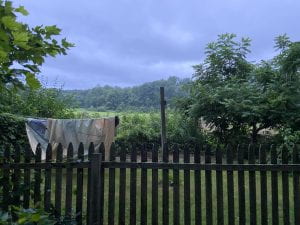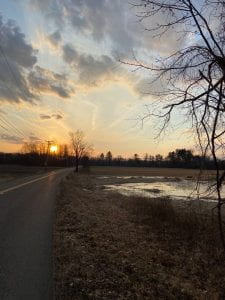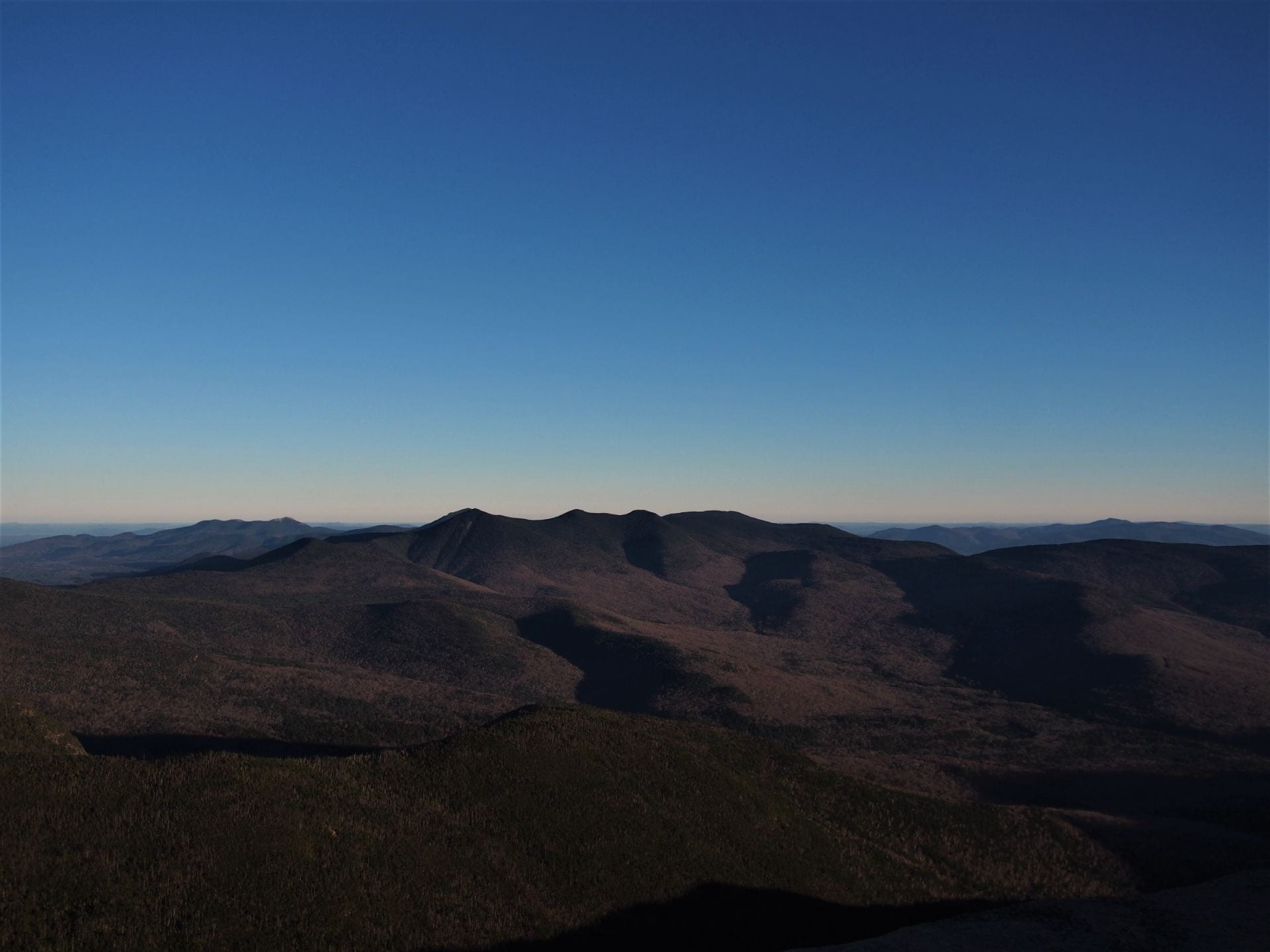
As Terry Williams states in Home Work, “each of us belongs to a particular landscape, one that informs who we are, a place that carries our history, our dreams, holds us to a moral line of behavior that transcends thought,” and my childhood backyard is mine (Williams 19). This is where I played until dark as a kid on summer days, where I climbed trees and made fairy houses using only what I could find in nature. It is where I helped my mother raise chickens and create vegetable gardens. It is where my love for nature and being in nature first began. Behind the fence and our clothesline lies a corn and vegetable field and beyond that, a forest. In the field there is all sorts of wildlife, from turkeys and deer, to foxes, fisher cats, and coyotes. I would explore for hours in the thick of the corn, making my way to the trails in the woods. On my way home, I would take squash that was forgotten after the harvest, or pumpkins to carve in the October months. It is where I would ride my bike through the trails and during summer nights. If I rode my bike at night during the peak of firefly season, I would be surrounded with hundreds of fireflies that would light up the sky in a truly magical way. Down the road is a pond, and in the winter months it was a place to ice skate on the rugged terrain or to just look through the ice and see another world in the cold water below. This is the place where I fell in love with a Mourning Doves song and fall asleep to the sound of crickets. Bell Hooks stated in Touching the Earth that “when we love the Earth, we are able to love ourselves more fully” and I couldn’t agree more. Growing up in a home with open spaces and trees right in my backyard made me the person I am today. It made me someone who needs a walk in nature in order to decompress and feel like myself again. It made me someone who appreciates the softness of moss, and the smell of eucalyptus trees, someone who wants to preserve the nature around me. I feel privileged to be someone who grew up with people in my life who were also connected to nature and who were always outside exploring. Although some people are comforted by the sound of cars and construction in the city, I feel suffocated and restless. The towering skyscrapers, the smell of gas and waste, the materialistic shops, the people always rushing from place to place.

Barbra Kingsolver states in Knowing Our Place that “people will need wild places. Whether or not they think they do, they do. They need to experience a landscape that is timeless, whose agenda moves at the pace of speciation and ice ages” (Kingsolver 2).
“Once strengthened by our association with the wild, we can return to family and community” -Terry Williams
I remember one year in particular when our new neighbors arrived. Lining our property from theirs was a row of tall cedar trees. It made me feel as though our house was secluded in nature. Due to the trees’ close proximity to each other, if you were to crawl through the low hanging branches it created a little hideout inside the trees. It was somewhere where you could be surrounded by nature. It’s somewhere where I felt at peace. However, my neighbors wanted to cut them down, and since the trees technically laid on their side of the property, there was nothing I could do about it. I told my parents I would tie myself to the trees or leave them a note saying how much it meant to me that those trees were still standing, but to no avail. A few years later, after a distressed thirteen-year-old me was still upset by the falling of my cedar trees, they ended up planting new ones. Although this instance is a smaller scale as to what’s happening out in the world in mass occurrences, I believe it can be related on a much smaller scale regarding preservation and the bedrock democracy as William states.
I always wondered if people could just get out of the city and see the natural wonders of the world and listen to stories of the importance of nature to the health of the planet and the people that rely on it, if it would change humanity as a whole. I believe everyone needs nature, to be outside or just have fresh air pour through a window, to listen to the birds, see the constellations and feel the wind press against their skin. The tranquility that nature provides brings someone back to themself. Williams states that “place + people = politics” and although it is defined as a “simple equation” there are aspects that are anything but simple (Williams 3). There are people in this world that look at land and use it as their trash can, or in the West for example there is “increasing off-road vehicle use, threats of oil and gas drilling, and State Institutional Trust Lands being sold to the highest bidder, leading to the escalation of trophy homes, gated communities, and luxury resorts often near the boundaries of national parks and wilderness areas (Williams 14). People take for granted the ground on which we walk, we can’t do anything we want with it.
Works Cited:
Hooks, Bell. Touching the Earth. 363-368.
Kingsolver, Barbra. Knowing Our Place. 1-2.
Williams, Terry. Home Work. Red. 3-19.

Hey Sam,
I really enjoy the way you described where you grew up. I think that is the romanticized place that we all dream of when we’re kids. It’s not often that people plant a new tree when one is taken down. Our reverence of nature has grown into something that I am not proud of. There is a lack of respect for the natural world and the wild life within it. These big companies want to see the land and use it as a way to create more income for themselves. It honestly reminds me of a book (also movie) I read as a kid, “Hoot” by Carl Hiaasen.
If you’re unfamiliar, it’s about a kid from Montana that moves to Florida and finds a population of endangered owls that live in the ground. A big company wants to plow over the land where these owls live so they can gentrify it but this kid finds a way to fight to protect the owls. We don’t see much of this anymore. It’s just the destruction of land but no one ever talks about how much is truly destroyed in that process.
Here’s a PDF of the book if you want to read it. It’s a kids book so it’s a fairly easy read.
https://biolit-hs.weebly.com/uploads/2/2/8/9/22893944/hoot.pdf